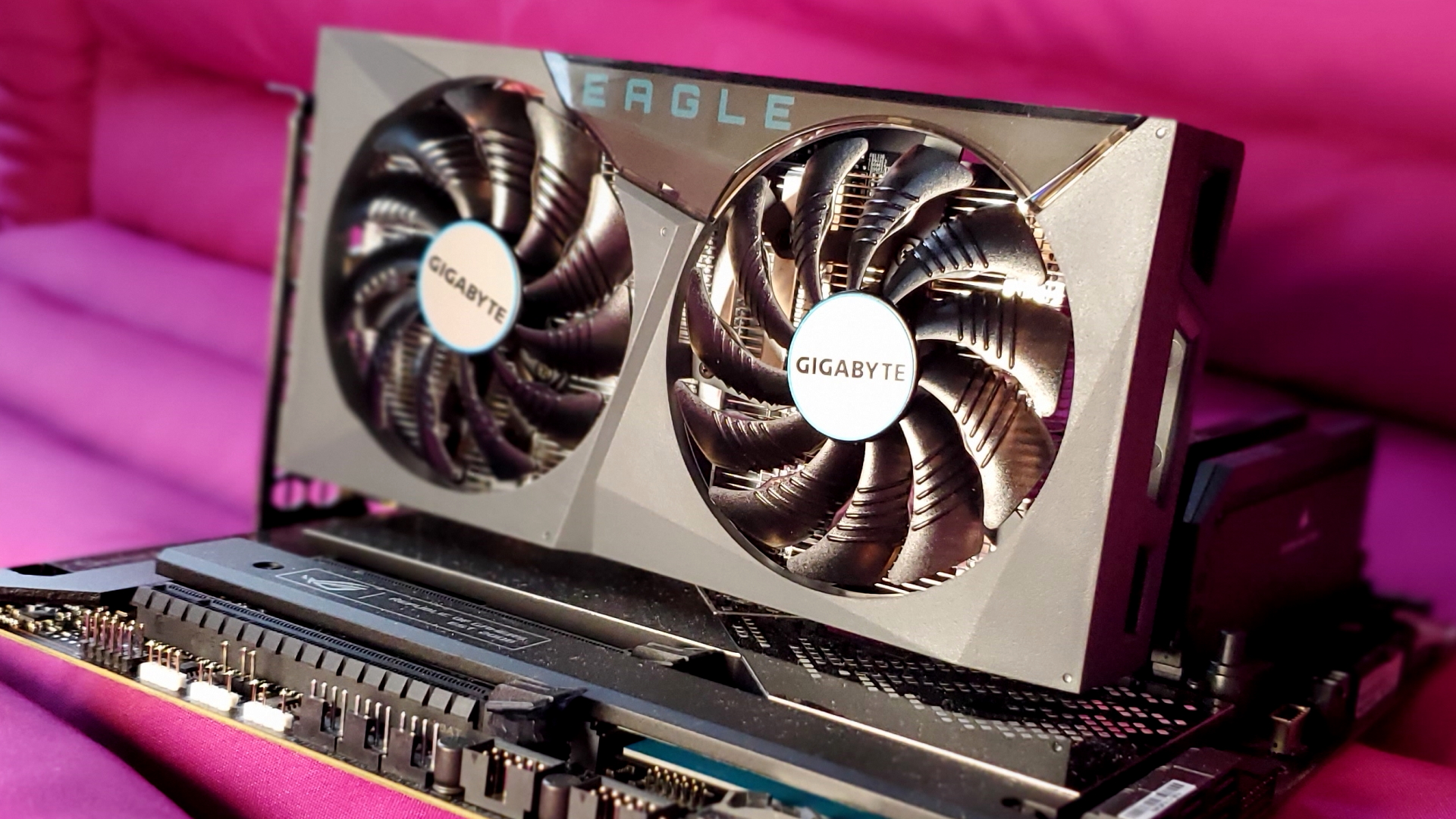It looks like the RTX 3050 is finally going to be discontinued only to be replaced by a worse RTX 3050. Because…umm, reasons?
Less VRAM, less performance, less chance of it being worth buying.

With its second birthday barely a month away, news that Nvidia is purportedly going to discontinue the GeForce RTX 3050 isn't surprising, as eventually all GPUs get replaced. But the rumour here is an odd one, as it contends a 'new' RTX 3050 will be introduced, with less VRAM and with a much lower power limit. Because that's exactly what the budget PC gaming sector really needs right now: worse last-gen cards.
We spotted the story on the RTX 3050 apparently going bye-bye over at BenchLife.info, with the wording of the rumour appearing on Videocardz. The source for the information is Board Channels, a website that aggregates hints and other snippets from graphics card vendors, and it states the slowest GPU in Nvidia's Ampere range is set to be discontinued.
The exact date is unspecified but it will probably align with its replacement: the GeForce RTX 3050. Yes, that's right: Another one.
Except this one will reportedly be worse, as the leak suggests that it will lose 2GB of VRAM and its external power connector. That means it will have a maximum TDP of 75W, getting all of its current through the PCI Express slot, and sport a miserable 6GB of GDDR6 memory.
It will probably still use the same GA106 chip that powers the RTX 3060, but it's likely to just be the very worst ones from the chip binning process. The current RTX 3050 sports 2,560 shaders, a boost clock of 1,777MHz, and 8GB of VRAM on a 128-bit memory bus. It has a TDP (thermal design power) of 130W, so the only way it's going to work at 75W is by having fewer shaders and/or a lower boost clock.
Having less VRAM will help but given that GDDR6 doesn't use much power, the bulk of the power limit reduction will have to come from reducing the RTX 3050's rendering capabilities even further.
The laptop version of the RTX 3060 has 6GB of VRAM and a 192-bit memory bus, so the new RTX 3050 may have more memory bandwidth than the older one, but I suspect it won't as this all looks like churning through the dregs of the GA106 production line.
Keep up to date with the most important stories and the best deals, as picked by the PC Gamer team.

Best CPU for gaming: The top chips from Intel and AMD.
Best gaming motherboard: The right boards.
Best graphics card: Your perfect pixel-pusher awaits.
Best SSD for gaming: Get into the game ahead of the rest.
If I dabbled in gambling, I'd perhaps put money on the replacement model having around 2,048 shaders, a boost clock of 1,700MHz, and a 92-bit memory bus. There again, It might also have the same number of shaders as the outgoing RTX 3050 but use faster GDDR6 (18Gbps instead of 14Gbps) to make up for the reduction in memory bus width.
But even if that's the case, the clock speeds will have to come down to keep it within the 75W power limit.
It doesn't matter what the specifications end up being though, as BenchLife is suggesting that the retail price could be around the $180-190 mark. There are far better graphics cards on the market at that price: Just check out our curated graphics card deals page to see what I mean.
An Arc A750 or Radeon RX 6600 for a few more bucks would make mincemeat of a 6GB RTX 3050. Yes, the budget PC gaming sector needs more options to choose from but a mangled RTX 3050? Absolutely not, thank you very much.

Nick, gaming, and computers all first met in 1981, with the love affair starting on a Sinclair ZX81 in kit form and a book on ZX Basic. He ended up becoming a physics and IT teacher, but by the late 1990s decided it was time to cut his teeth writing for a long defunct UK tech site. He went on to do the same at Madonion, helping to write the help files for 3DMark and PCMark. After a short stint working at Beyond3D.com, Nick joined Futuremark (MadOnion rebranded) full-time, as editor-in-chief for its gaming and hardware section, YouGamers. After the site shutdown, he became an engineering and computing lecturer for many years, but missed the writing bug. Cue four years at TechSpot.com and over 100 long articles on anything and everything. He freely admits to being far too obsessed with GPUs and open world grindy RPGs, but who isn't these days?

